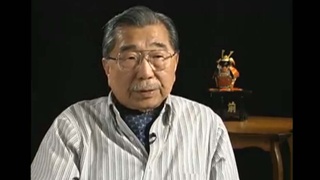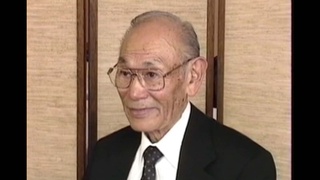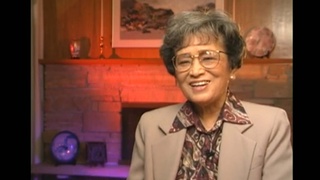Interviews
Lesson to be Learned
The internment did not just affect Japanese Americans. It certainly didn't just affect Asian Americans. It affected everybody in the country because it was done by the American government. And so I think one of the lessons that has to be learned is that in time of war -- and this is exactly what Judge Patel said in her opinion -- in time of war or national emergency, passions are aroused, and any group can be singled out. ... The thing that we can hope for is that more and more people will realize how important it is to learn these lessons and to be willing to work and take sacrifices and risks of protecting what's most important to us, the values of our Constitution, even though during wartime and crisis, as John J. McCloy once said, "The Constitution is just a scrap of paper."
Date: October 27, 2000
Location: Washington, US
Interviewer: Alice Ito, Lorraine Bannai
Contributed by: Denshō: The Japanese American Legacy Project.
Explore More Videos

Different learning style in Japan and the United States
(1918-2023) Nisei Japanese kabuki dancer


An emotional response from mother upon talking about incarceration experience
(b. 1946) Lawyer


Thoughts on relationship between Japanese Peruvians and Japanese Americans at Crystal City, Texas
(1937 - 2021) Teacher

Encountering a train full of Japanese Americans being transported to a concentration camp
(b. 1923) Chick sexer

Sneaking out of the Hastings Park camp during World War II
(b. 1928) Doctor. Former Chair of the Japanese Canadian Redress Foundation.

Hiding out to avoid the concentration camps (Spanish)
(b. 1932-2016) Peruvian painter


A Dutiful Son
(1918-2012) Fought the constitutionality of Executive Order 9066.

Bypassing the Constitution
(1918-2012) Fought the constitutionality of Executive Order 9066.

A Wrong Righted
(1919 - 2005) Challenged the constitutionality of Executive Order 9066.


Erasing the Bitterness
(1923–2008) One of the leaders behind the redress movement.

